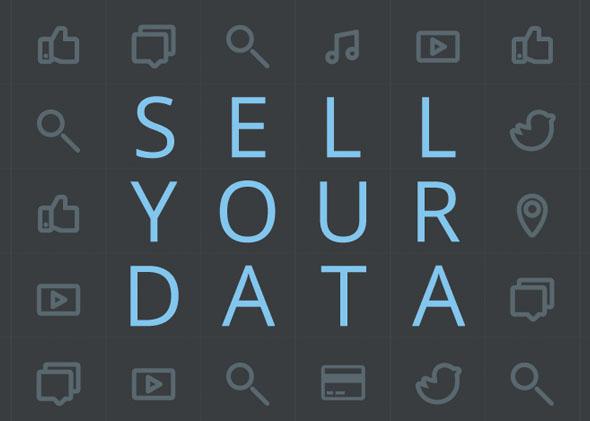Sometimes it feels like everyone except you is profiting from your browsing history and social media habits. But now you can get $8 per month to give a new startup called Datacoup access to your social media accounts and your credit/debit transactions. In this case, taking some power back means formally giving data away.
Datacoup’s plan is to scrub your information of personal details, process it, and then sell analysis of trends in the data to companies looking to understand different markets or online consumer behaviors. Currently the service is in beta tests, and 1,500 people have signed up to sell their info, though no one has bought data yet.
The company’s CEO and cofounder Matt Hogan told MIT Tech Review, “If a consumer wants to make an educated decision, they should be able to sell their data to who they want.” And Datacoup is even thinking of expanding so customers can sell their search histories or data from lifelogging devices if they want to.
Hogan says that the reason it’s more valuable to buy Datacoup’s data than to get it from other sources is that Datacoup can directly link online activity and spending. “There’s no way to do that other than from the user themselves,” Hogan says. But from the individual user’s perspective Datacoup is a mixed bag. It has an element of increased agency to it because users seek Datacoup out instead of being forced to agree to terms that include data mining if they want to use a particular service, as with Google products for example. But they can’t control what will happen to their data once it’s collected, and there could be unforeseen consequences.
For example, if Datacoup data showed that many of the service’s users are loyal customers at a certain store, that store might send fewer discount codes to anyone who is a Datacoup customer, knowing that most of them would continue to shop there anyway. Furthermore, poor and disenfranchised people will presumably be the most tempted to sacrifice some privacy for monthly compensation whether or not this is in their best interest long term.
If things go well, other companies will probably offer similar deals and the monthly compensation for data could go up. The idea of selling personal data isn’t new. People have calculated how much they think they should be compensated by companies like Twitter and other major social networks that collect data all the time. One guy even tried to sell his personal data on Kickstarter. But real progress will involve people using their power to withhold personal data as leverage to demand greater transparency from the companies doing the collection and analysis.
